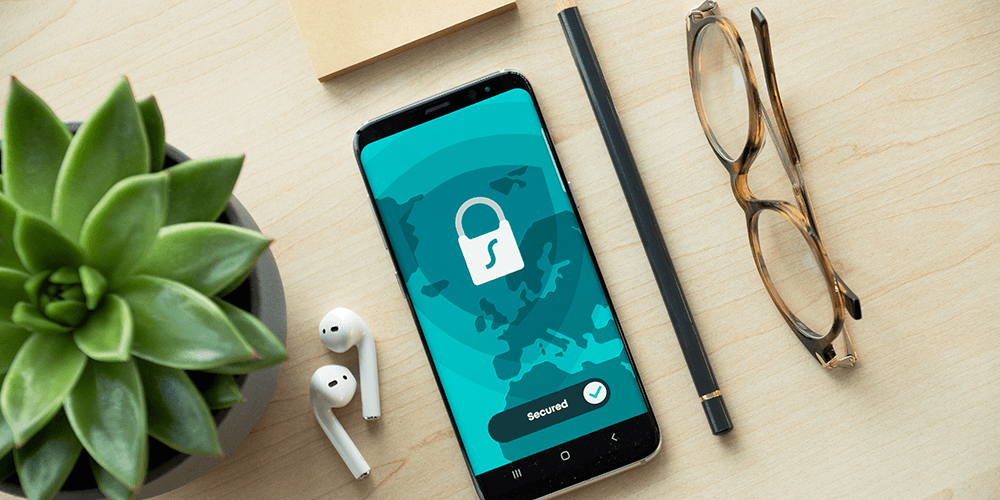- Solutions
- Products
- Community
- Resources
- Company
Create incredible candidate experiences that communicate your brand, mission, and values with recruitment marketing solutions.
Learn moreCommunicate effectively and efficiently with the candidates that can drive your business forward.
Learn moreSelect the right candidates to drive your business forward and simplify how you build winning, diverse teams.
Learn moreHelp your best internal talent connect to better opportunities and see new potential across your entire organisation.
Learn moreCommunicate collectively with large groups of candidates and effectively tackle surges in hiring capacity.
Learn moreAccess tools that help your team create a more inclusive culture and propel your DEI program forward.
Learn moreRebound and respond to the new normal of retail with hiring systems that are agile enough to help you forge ahead.
Learn moreAccelerate the hiring of key talent to deliver point of care and support services that meet and exceed your promise of patient satisfaction.
Learn moreAttract and engage candidates with technical competencies, accelerate hiring for much-needed skills, and advance expertise within your valued workforce.
Learn moreSimplify how you recruit finance, insurance, and banking candidates with a unified platform built to match top talent with hard-to-fill roles.
Learn moreYour business strategy depends on your people strategy. Keep both in lockstep with the iCIMS Talent Cloud.
Learn moreBuild an engaging, high-converting talent pipeline that moves your business forward.
Learn moreDeliver the innovation your talent team needs, along with the global scale and security you demand.
Learn moreDeliver tailored technology experiences that delight users and power your talent transformation with the iCIMS Talent Cloud.
Learn moreThe #1 ATS in market share, our cloud-based recruiting software is built for both commercial and large, global employers.
Learn more Talk to salesAttract the best talent for your business with powerful, on-brand career websites that excite candidates and drive engagement.
Learn more Talk to salesBuild talent pipelines, engage candidates with multi-channel marketing campaigns, and use machine learning to automatically surface the right talent for the job.
Learn more Talk to salesEmpower candidates with automated self-service, qualification screening, and interview scheduling through an AI-enabled digital assistant.
Learn more Talk to salesSimplify employee onboarding with automated processes that maximize engagement and accelerate productivity.
Learn more Talk to salesRecruit in the modern world and expand your reach with built-in virtual interviewing.
Learn more Talk to SalesFocus on qualifying candidates faster with fully integrated language assessments.
Learn more Talk to SalesImprove employee experience, retention, and reduce internal talent mobility friction with the iCIMS Opportunity Marketplace.
Learn more Talk to salesCompliment your sourcing and engagement efforts with sophisticated lead scoring and advanced campaign personalization.
Learn more Talk to salesModernize, streamline, and accelerate your communication with candidates and employees.
Learn more Talk to salesTransform the talent experience by showcasing your authentic employer brand through employee-generated video testimonials.
Learn more Talk to salesGive your business a competitive edge with a complete solution for creating personalized, timely, and accurate digital offer letters that inspire candidates to want to join your team.
Learn more Talk to SalesGet robust analytics that help you make sense of your data and illuminate your talent pool.
Learn moreSimplify recruiting, dynamically engage talent, and reduce hiring bias with job matching and recruiting chatbot technology.
Learn more Talk to salesThe #1 ATS in market share, our cloud-based recruiting software is built for both commercial and large, global employers.
Learn more Talk to salesAttract the best talent for your business with powerful, on-brand career websites that excite candidates and drive engagement.
Learn more Talk to salesBuild talent pipelines, engage candidates with multi-channel marketing campaigns, and use machine learning to automatically surface the right talent for the job.
Learn more Talk to salesEmpower candidates with automated self-service, qualification screening, and interview scheduling through an AI-enabled digital assistant.
Learn more Talk to salesSimplify employee onboarding with automated processes that maximize engagement and accelerate productivity.
Learn more Talk to salesCompliment your sourcing and engagement efforts with award-winning lead scoring and advanced campaign personalization.
Learn moreImprove employee experience, retention, and reduce internal talent mobility friction with the iCIMS Opportunity Marketplace.
Learn more Talk to salesModernise, streamline, and accelerate your communication with candidates and personnel.
Learn more Talk to salesTransform the talent experience by showcasing your authentic employer brand through employee-generated video testimonials.
Learn more Talk to salesGet robust analytics that help you make sense of your data and illuminate your talent pool.
Learn moreSimplify recruiting, dynamically engage talent, and reduce hiring bias with job matching and recruiting chatbot technology.
Learn more Talk to salesHow PRMG attracts 50% more applicants for niche finance roles with the iCIMS Talent Cloud.
Learn moreThousands strong, our global community of talent professionals includes creatives, innovators, visionaries, and experts.
Learn moreTogether we’re creating the world’s largest ecosystem of integrated recruiting technologies.
Learn moreExplore our network of more than 300 certified, trusted third-party service and advisory partners.
Learn moreExpert guidance about recruitment solutions, changes in the industry, and the future of talent.
Learn moreExpert guidance about recruitment solutions, changes in the industry, and the future of talent.
Learn moreStay up to date with the latest terminology and verbiage in the HR software ecosystem.
Learn morePartner with iCIMS to build the right strategies, processes, and experience to build a winning workforce.
Learn moreThe iCIMS Talent Cloud delivers a secure, agile, and compliant platform designed to empower talent teams, job seekers, and partners with advanced data protection and privacy.
Learn moreWatch the recording of our latest webinar looking at key findings from a recent study and explore short-term and long-term solutions for the talent crisis in 2022 and beyond.
Watch on-demandView press releases, media coverage, and the latest hiring data. See what analysts are saying about iCIMS.
Learn moreiCIMS is the Talent Cloud company that empowers organizations to attract, engage, hire, and advance the talent that builds a winning workforce.
Learn moreGet to know the award-winning leadership team shaping the future of the recruiting software industry.
Learn moreWe believe the future of work isn't something that "happens" to you. It's something you create. We actively create the future of work with our customers every day.
Learn moreStreamline your tech stack and take advantage of a better user experience and stronger data governance with ADP and the iCIMS Talent Cloud.
Learn moreThe combined power of iCIMS and Infor helps organizations strategically align their business and talent objectives.
Learn moreOur award-winning partnership with Microsoft is grounded in a shared desire to transform the workplace and the hiring team experience.
Learn moreOur partnership with Ultimate Kronos Group (UKG) supports the entire talent lifecycle by bringing frictionless recruiting solutions to UKG Pro Onboarding.
Learn moreLet’s get in touch. Reach out to learn more about iCIMS products and services.
Learn more

Earlier this month, the four-day Global Privacy Summit 2019 delivered a breadth of content spotlighting the big picture of data privacy and protection to more than 3,600 privacy professionals in Washington, D.C. Hosted by the International Association of Privacy Professionals (IAPP), the largest global information privacy community and resource center, the world’s preeminent annual data privacy and protection event promised to light the way on a variety of topics and emerging trends in the face of mounting complexity.
Josh Torres, corporate regulatory & privacy counsel at iCIMS, had the opportunity to attend the Global Privacy Summit 2019. As a global recruitment software provider, processing more than 75 million job applications a year for more than 4,000 clients, iCIMS finds it critically important to have a privacy expert at the helm. While at the conference, Torres was recognized as one of the members of the inaugural class of IAPP Privacy Law Specialists (PLS). The PLS designation places Torres among the elite in privacy law.
Here are a few highlights and key takeaways from top sessions at the conference, and themes we expect to continue to hear about for the remainder of the year into 2020:
1. Understanding the CCPA
The California Consumer Privacy Act 2018 (CCPA), set to go into effect in January 2020, has the potential to change how organizations in California and throughout the world handle consumer data.
This session gathered top leaders in California privacy to provide insight on the law, including its scope, comparisons to the General Data Protection Regulation (GDPR), and enforcement details. Torres and iCIMS are currently evaluating the legislation and its impact. In addition, they are continuously monitoring a wave of proposed amendments that may change the way CCPA impacts business.
The following are a quick summary of the current proposed amendments:
a. AB 25. An amendment that would modify the definition of “consumer” to exclude employees and job applicants
b. AB 846. An amendment that seeks to clarify the treatment of retail loyalty programs
c. AB 873. An amendment that would clarify the definition of “deidentified” and the handling of deidentified information
d. AB 981. An amendment that proposes to exempt from the CCPA “insurance institutions, agents, and support organizations”
e. AB 1146. An amendment that would exempt a defined category of vehicle information from the CCPA’s right to deletion and do not sell requirements
f. AB 1564. An amendment that would modify the requirement that a business must make available two or more designated methods for consumers to submit access requests to just one method
Keep an eye out for more iCIMS news related to the CCPA in the coming months.
2. Ethical Use of Employee Data: Improving Your Workplace the Right Way
During this session, experts from AT&T, Dell and the Future of Privacy Forum discussed the collection, use and sharing of employee data. In addition, they provided guidelines and discussed industry best practices to create an employee data governance program.
As a result of voluminous data breaches across the globe, more and more companies are recognizing the need for more stringent protections and clear transparency around the collection, use and sharing of employee data. However, not all have paid attention to these issues and how they impact employee data. In reality, companies collect large amounts of employee data that could hold significant value. However, some employees are skeptical of this thought process.
That is why we believe treating and protecting employee data with sensitivity is critical. We also think that data privacy and protection ought to start at the beginning of an employee’s relationship with a business. Therefore, iCIMS is committed to protecting candidate data rights throughout the hiring journey.
3. Letting the Machine Decide? Privacy Risks Associated with AI Technologies
AI (Artificial Intelligence) technology has the potential to revolutionize business in nearly every industry. According to PwC, business leaders believe AI is going to be fundamental in the future, with 72 percent terming it a “business advantage.”
This panel session – including speakers from Morrison & Foerster, Oracle and Uber – detailed the privacy and reputational risks associated with AI. They also shared how companies can mitigate them in compliance areas such as data minimization, notice and transparency requirements, security, data subject access and deletion rights, individual rights, and restrictions on profiling and automated decision-making.
The speakers also covered how regulatory developments, such as GDPR and the CCPA, may become an obstacle when using AI with respect to personal data. One common theme was that AI, viewed as a big data technology, generally opposes the basis of data protection and privacy laws. As a result, businesses must grapple with this issue and evaluate how they will deal with it.

and receive free tips on how to attract, engage, hire, & advance the best talent.




